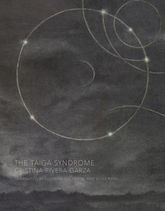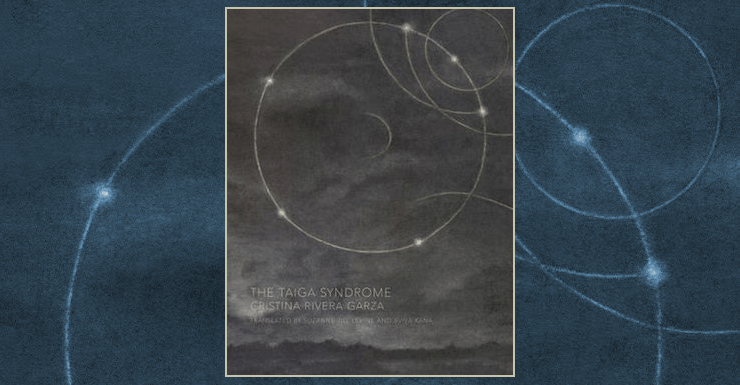1. how does any story work
Wood, snow, blood: old stories. The witch in the forest, the breadcrumb trail, the grandmother-skinned wolf—everybody’s here, in this wild little book, breath steaming humid in the cold air. The taiga is the sometimes swampy coniferous forest of the high northern latitudes. A person has gone there with her lover to become lost. Or perhaps she has gone there to find something else.
2. suicide
Our narrator is a writer, a failure, and a detective. She is hired by a man whose Adam’s apple she cannot fail to notice to find a woman who loves someone other than him, or who has run away to the taiga with someone other than him, which, to him, is the same thing, but may not be the same thing to us. The circumstances of her own disappearance may not be of interest to the disappeared. She is the protagonist of a different story than the one the man seeking her has told.
“It seems,” he tells our narrator, “that certain inhabitants of the taiga begin to suffer terrible anxiety attacks and make suicidal attempts to escape.” This is a phenomenon long documented in the Arctic. Ishavet kaller, writes the painter Christiane Ritter, who spent the winter of 1934-1935 with her trapper-husband on the island of Spitsbergen, in the Norwegian archipelago of Svalbard: “Ishavet kaller: This is what the Spitsbergen hunters say when one of their comrades, for mysterious reasons of his own, throws himself into the sea.” Maybe he can no longer stand the endless darkness of the polar night. Maybe he can no longer bear the inhuman grandeur of its beauty. A fairytale kind of death, if you think about it. Or a manner of haunting.
The woman our narrator has been tasked with detecting, the woman who has escaped, or run away, or agreed to her own absence, documents her flight, leaves our narrator an analog trail: telegrams, letters, maps. If we are lost to other people but not to ourselves, what constitutes our geography? If the terrain is unknown are we missing? Or are we merely unwilling to be found?
3. “This is not a fairy tale, detective,”
the narrator’s client says. The narrator’s client touches her arm without her consent; later, she chooses to touch him. Other things this book is not: a logic, a pathway, a love story, a thing you have seen before. It is a fairy tale, of course. A book that is teemingly dense with wolves.
4. failures
“Failures weigh people down,” our narrator says. “Failures force us to reflect, and reflection, with any luck, may lead us to a coastal city and a pile of blank pages. Failures drink coffee in the morning and keenly observe the afternoon light, and, when possible, go to sleep early.” I read this passage while drinking coffee, dreaming of a coastal city, in the keen afternoon light, and when I came to the end of it I cried until I finally had to go do something else.
5. a thesis
Themes include: wilderness, dislocation, language, abandonment, sex, the body, illness, madness, desire, death, the sea. Effluvia, translation, transit. If you were to write a paper, or a regular kind of book review; which, obviously, I am not. You want to write about a book, but maybe you have been wondering if you know how to write about anything at all anymore. This is not an ordinary book. Then again, this is not an ordinary time.
I’m not supposed to be drinking, you say to the bartender, who is no stranger to this line of enquiry. I’m supposed to be writing about a book. It is true you would rather be someplace else: unfindable, Arctic, a heart alive with ice. In a cabin in the forest, a place journeyed to on foot. A place you have once been and to which you dream of returning. The bartender is disinterested. The bartender pours you another shot. In the bar your phone dies; but from that place, at least, you already know the tedious way back.
In truth our narrator is not a detective so much as she is an archaeologist of loss. These days, who needs a dossier, a briefcase full of documents, when it comes to sorrow?
Buy the Book


The Taiga Syndrome
6. solastalgia
is the name of a specific kind of grief, the distress produced by the effects of climate change on a place that has long supported a community. It is a form of mourning that particularly affects indigenous peoples who depend on subsistence activities for their survival, although it is a loss that can splinter its way into anybody’s heart.
“Above all,” our narrator says, “I remember I used to exhale… in front of the glass, and write with the tip of my index finger the words ‘I am leaving here’ and ‘I will never return.’”
7. “We all carry a forest inside us, yes,”
our narrator says. The wilderness to which we are returning. The long way to becoming missing.
We go to a place we imagined as foreign, and find instead that we are home.
The Taiga Syndrome is available from Dorothy Project.
Sarah McCarry is the author of three novels: All Our Pretty Songs, a Tiptree Award honoree; the Norton award-nominated Dirty Wings; and the Lambda award-nominated About A Girl.










